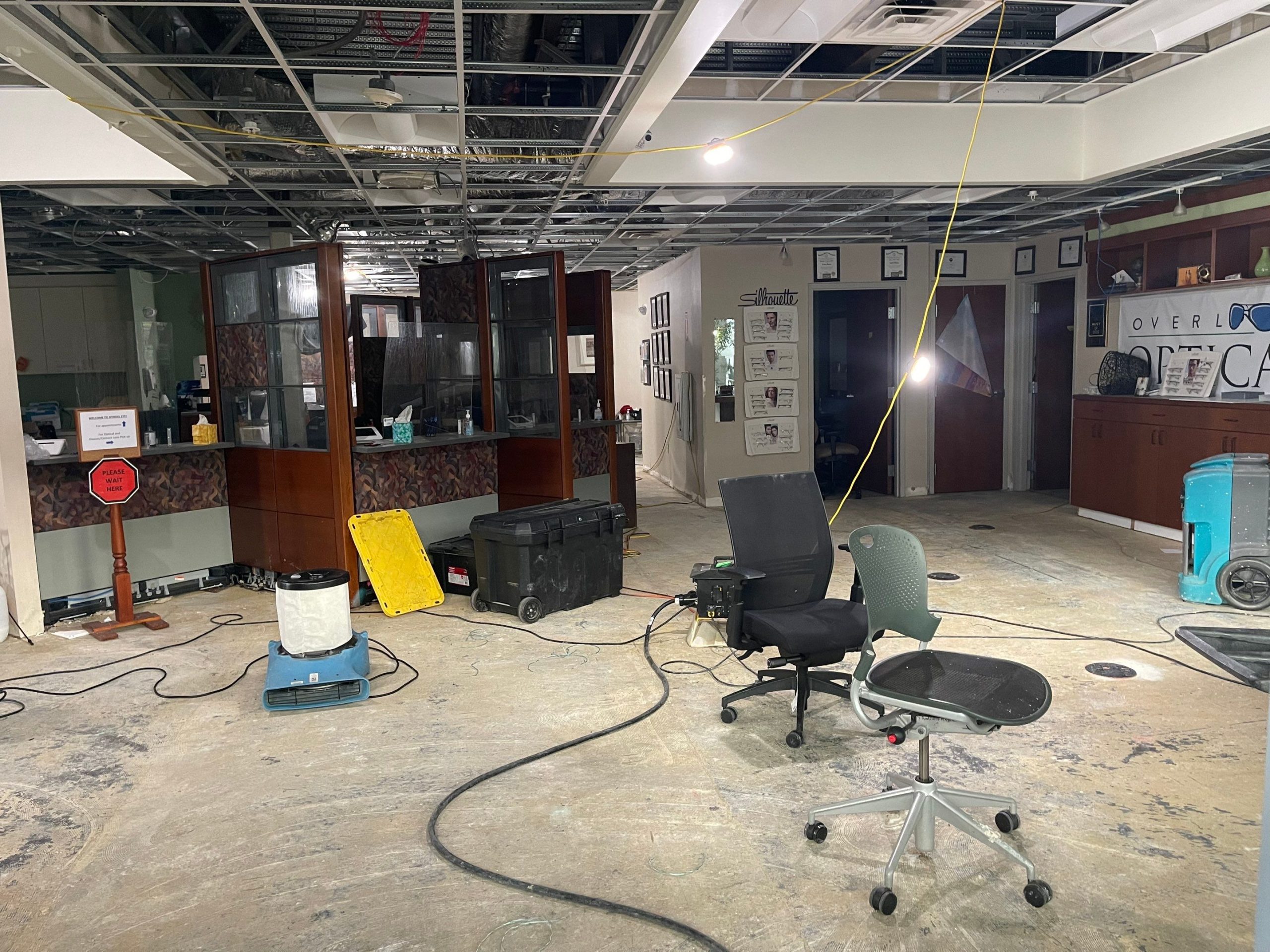“People tell me I should give a seminar on how to recover from a fire.” This is what Dr. Jerry Spindel hears when discussing the catastrophic property loss suffered by his business, Spindel Eye Associates. We recently sat down with Dr. Spindel to discuss the steps he took to manage the insurance claim process, including his experience with a public adjuster (PA) after he hired SMW.
SMW: How did you know to hire a PA?
Dr. Spindel: Tom Buchanan, the building administrator in Derry, told me about PAs. He said I should hire Swerling Milton Winnick. It’s the best advice I’ve ever been given. Tom emphasized that dealing with a complex claim like this one required insurance experts who are well versed in that area. That’s what sold me – expertise in the more complicated parts of the claims process. In addition, our bookkeeper quit a week after the fire, so I knew I would need help.
SMW: How was the process for you?
Dr. Spindel: SMW did an amazing job. The attention to detail was just incredible. I reviewed every line of the inventory SMW prepared, and it was outstanding. The entire SMW team was right there with me in the 100-degree conditions. It was just horrible, but SMW didn’t waver. The business personal property alone was valued at more than $2 million, so it represented a huge part of the assignment. SMW detailed items right down to the medical swabs and cotton tip applicators. SMW saved the day.
SMW: How did you make the decision to salvage some of the equipment?
Dr. Spindel: I knew much of the equipment was damaged but still had value. And I didn’t know if I had enough coverage, since the cost of medical equipment has skyrocketed over the past five years. I wasn’t sure I had enough to cover a loss of this size.
SMW: How were the first few weeks, considering that your loss took place in the hub building of your medical practice, and that you had to relocate while continuing to see patients?
Dr. Spindel: Luckily, I have a great staff and great managers. Lots of employees were stepping up and asking to help. It was very helpful to have that support. We have three satellite locations, and we were able to quickly shift patients to those other offices. One problem we faced was that we didn’t have our office computers and phones. Now I tell other businesses they need a good disaster recovery plan. Our internet hub and computer backup are now more robust – we can get back up and running in a few hours and can run the entire practice remotely from a server farm. I wish I had that earlier.
Also, we now have an internet-based phone system. So, we can plug in at home and run the business from there if we need to. It took us probably two months after the fire before we had phones. We didn’t have the electronic medical records (EMR) up for a week or two, and the financial system took a while. The whole thing was very difficult and very stressful. Thank goodness the fire took place just as I was about to start a two-week vacation, so I had time to deal with things.
SMW: What aspect of the process stands out the most for you?
Dr. Spindel: I struggled to understand the Business Interruption aspects of the claim. Luckily, Michelle Canniff is much smarter than I am. I actually just reviewed the email summary Michelle sent me – I think I now understand it. There were some last-minute proofs to the carrier about why our process was correct. But I had no idea how complicated the Business Interruption claim would be. It would have taken me so much time to figure that out. I simply could not have done that work by myself – I don’t have the required knowledge of how to project a loss. I’m a part-time businessperson and full-time doctor, and my experience with accounting is very straightforward. Michelle probably had more work than she wanted. It’s hard in the heat of battle to keep track of every penny. I still don’t fully understand BI – rates of growth, etc., and to figure it out would require going into every item. The key thing I was focused on was getting the business back to the point where it was generating revenue. We went off the edge of a cliff; we have a lot of employees, and we had payroll to make. We had to get revenue going. The bills are the same and no revenue. Leaving the BI aspects to Michelle helped greatly with that focus.
SMW: What would the claim process have been like if you did not hire a PA?
Dr. Spindel: Just look at what happened with the inventory adjuster sent by the carrier. That was a big problem. The insurance company’s adjuster’s original list only contained a fraction of our items. He only tagged the really big equipment, and he listed multiple items incorrectly or in the wrong rooms. I spent hundreds of hours on that list. To lose the $2M of equipment would have been crippling. On the BI side, if I didn’t have Michelle representing me, it would have been impossible. I just don’t speak their language. They weren’t available; I know Michelle had to chase them. I don’t have time for that. No way I could have gotten through the process and secured a good settlement.
SMW: Do you have any advice for businessowners on how to handle medical equipment in this situation?
Dr. Spindel: The advice I would give is to improve your file keeping system. Make sure you have detailed serial numbers. So, if you have a loss, you know exactly what you have. The video SMW created using Matterport technology was invaluable. It jogged my memory, allowing me to look through and pick up on various details. That was hugely helpful in helping me align with the inventory list because there are so many things you forget.
Another bit of advice is to make sure all your records are in order – this includes leases and bank statements. Get it all offsite if you can. Since the fire, we’re now online and we have a scanning system for all our documents. We have our records in the cloud. It’s hard to recreate those after a fire. Finally, make sure you have enough insurance. Review all the improvements and betterments. Since the fire, I have markedly increased my limits for all locations, so all my limits are much higher.
SMW: How is it being back in the new office and what do patients say?
Dr. Spindel: In the long run, having a brand-new office is great. Patients and staff all like it. Arguably, we needed a facelift. This is a hard way to do it, but getting a new office is wonderful. It took a year, which is remarkable.
SMW: Any other thoughts or suggestions?
Dr. Spindel: BI coverage is critical. I hadn’t heard of it prior to the fire. It might be worthwhile to increase it to twenty-four months. Also, I encourage businesses to review their leases. If you can, insist that if there is a fire and the building is unusable, you should not have to pay rent. That’s one to grow on from my own experience. I remember the first day after the fire, we crammed into a small room nearby and I didn’t know what to tell them. Now our operations, our recordkeeping and our bookkeeping are offsite. We moved our computer systems to back up on a server farm so we can get back up and running in four to five hours. We have learned a lot. SMW did a great job and I have no hesitation in recommending them.




